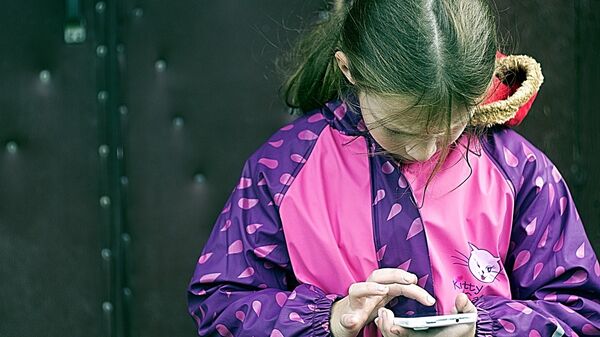The National Society for the Prevention of Cruelty to Children (NSPCC) has revealed new figures on crimes of sexual communication with a child recorded in 18 months.
New figures reveal over 5,000 online grooming offences were recorded in 18 months. Gov must create a new social media law to keep children safe online. Sign our petition and help us end the #WildWestWeb https://t.co/8o2QERyBQq pic.twitter.com/r6UTXhl6sS
— NSPCC (@NSPCC) March 1, 2019
Illustrating the type of offenses originating from online communication, NSPCC shared an account of a 13-year-old girl Emily, whose name was changed to protect anonymity.
"Emily was 13 when she was groomed online by a 24-year-old man. He had introduced himself and initially said he was 16, which quickly changed to 18. She told him she was 13. Later that evening he added her on Facebook and Snapchat," NSPCC said.
"It escalated very quickly from there. We exchanged texts which quickly became sexual, then photos and videos before arranging for him to come and pick me up after school. He drove me somewhere quiet… and had sex with me. I was bleeding and crying. This was my first sexual experience."
READ MORE: 'Paedophile Ring' Scandal Prompts YouTube to Axe Comments on Videos With Kids
According to the numbers, obtained by the charity, a total of 5,161 crimes of sexual communication with a child were recorded between April 2017 and September 2018. A 200% rise was recorded of instances in the use of Instagram to target and abuse children over the same time period.
"It is hugely concerning to see the sharp spike in grooming offences on Instagram, and it is vital that the platform designs basic protection more carefully into the service it offers young people. After 10 years of failed self-regulation by social networks, it is crucial that the Government's imminent Online Harms White Paper includes new laws that tackle online grooming once and for all," NSPCC's Chief Executive Peter Wanless said.
A spokesman for Facebook, which owns Instagram, vowed that advanced technology is used by the platform to "aggressively fight" abusive content and protect young people.
Almost one in four of 8-11-year-olds and three in four of 12-15-year-olds have a social media profile, NSPCC reports.



